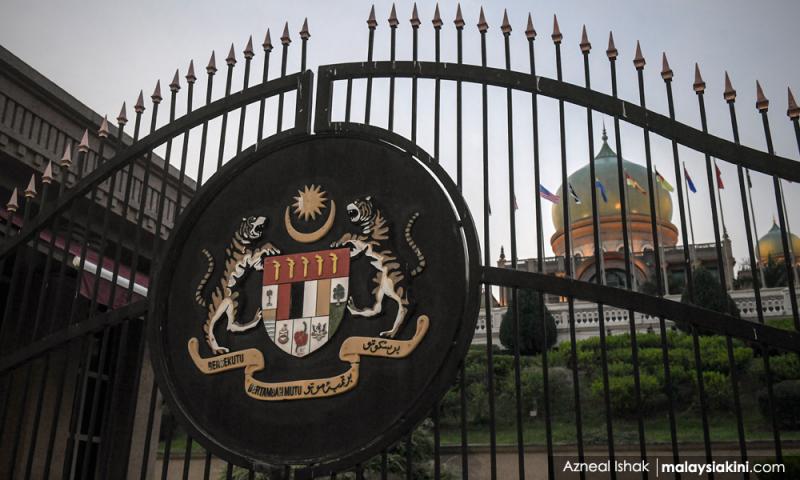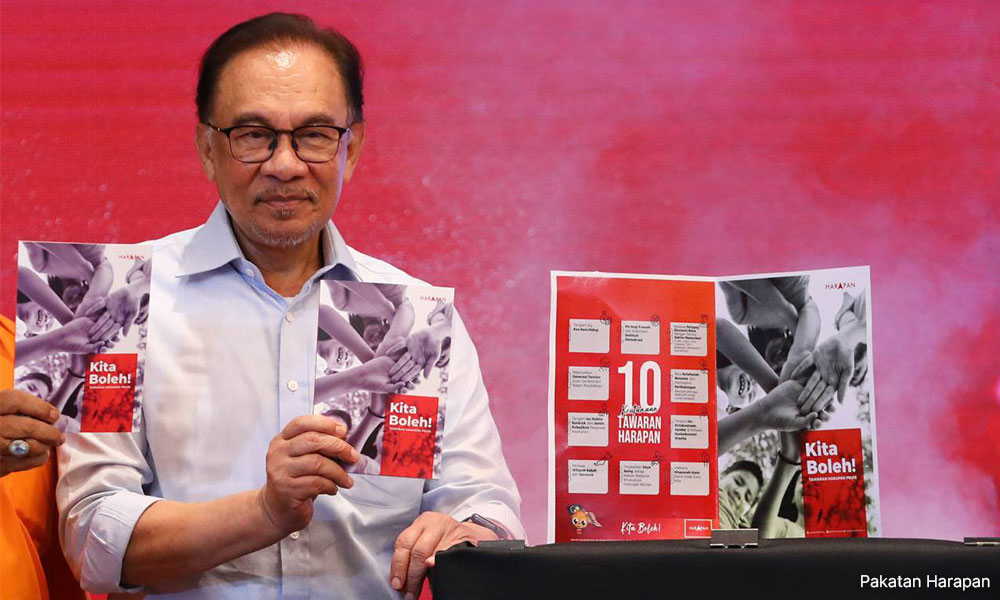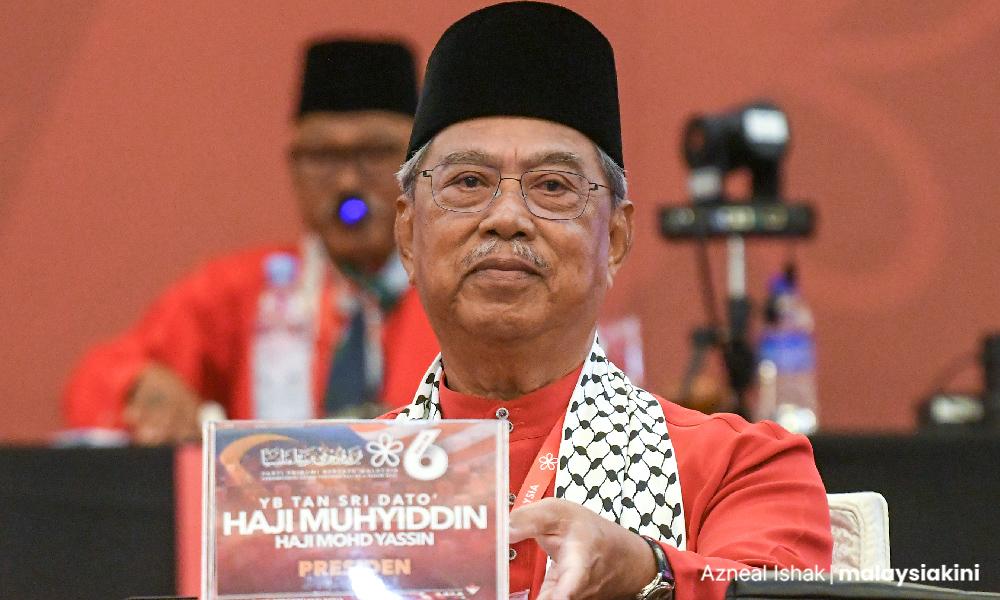
R Nadeswaran
Updated: Jul 22, 2024 6:29 PM
COMMENT | When Anwar Ibrahim was sworn in as the 10th prime minister on Nov 24, 2022, Malaysians were hopeful of evocative reforms and change - traits he had advanced during his political career and later in his election campaign.
His unity government had more than 150 lawmakers, giving a two-thirds majority in Parliament to push through his agendas.
Malaysians were impressed with the Pakatan Harapan manifesto, which, among others, alluded that Kuala Lumpur City Hall (DBKL) would be elected.
It said: “The Harapan government will work hard to empower democracy and transparency in DBKL through systematic methods. This effort will ensure that all Malaysians can elect representation that is reliable, inclusive, and represents the interests of the people, not the developers.”
Among the most protuberant undertakings, the manifesto was ending political appointments in Anwar’s administration.
Updated: Jul 22, 2024 6:29 PM
COMMENT | When Anwar Ibrahim was sworn in as the 10th prime minister on Nov 24, 2022, Malaysians were hopeful of evocative reforms and change - traits he had advanced during his political career and later in his election campaign.
His unity government had more than 150 lawmakers, giving a two-thirds majority in Parliament to push through his agendas.
Malaysians were impressed with the Pakatan Harapan manifesto, which, among others, alluded that Kuala Lumpur City Hall (DBKL) would be elected.
It said: “The Harapan government will work hard to empower democracy and transparency in DBKL through systematic methods. This effort will ensure that all Malaysians can elect representation that is reliable, inclusive, and represents the interests of the people, not the developers.”
Among the most protuberant undertakings, the manifesto was ending political appointments in Anwar’s administration.

Contracts of all political appointees including positions of chairpersons and board members considered to be political appointees in Federal statutory bodies as well as government-linked companies (GLCs).
The decision was made during a cabinet meeting on Dec 14, 2022, followed by a directive issued to the secretary-general of all ministries.
The directive covered political appointees in federal statutory bodies, Minister of Finance Incorporated (MoF Inc) companies, GLCs and government-linked investment companies (GLICs).
It had been a practice created and honed by previous Umno-BN governments. As blatant as they were, these posts were dished out as rewards to party leaders at all levels. It was also a backdoor entry for party leaders who lost in the elections.
Malaysians were happy to see such a system based on political patronage and nepotism coming to an end. It marked a distinct difference between a government set on changing the bad old days and bringing in talent and visionaries for a better Malaysia.
Heady start
It was indeed a heady start for a new government and such workable and acceptable statements were made. In praising the government, I wrote: “The government has set the exercise in motion and the entire system must be cleansed so that procedures are in place to ensure that we do not go back to the old days.”
Some background: According to the think-tank Ideas, 234 such appointments were carried out under then-prime minister Ismail Sabri Yaakob from August 2021 to September 2022.
Among that, 119 were new entries while 115 had been maintained from the previous Muhyiddin Yassin-led backdoor government.

Muhyiddin Yassin
The think-tank said Umno dominated the number of politicians retained in federal statutory bodies with 52 appointments while Bersatu had 28 appointments and PAS 11.
More than half of the new appointments were said to have come from Umno (61), followed by Bersatu (19), Parti Bangsa Malaysia (15), PAS (seven) and MCA (five).
But that déjà vu did not last long.
On Dec 21, 2022, Anwar recanted at a media conference, saying: “I never said individuals involved in politics cannot be part of (GLC) management. However, they should be bound by certain conditions and have the required qualifications in the relevant fields.
“There is a possibility that several political figures or MPs will be assigned (to GLCs), but we will set the guidelines on the required level of an individual’s professional ability, his past performance, and compliance with the rules of governance.”
Same old grind
On Thursday, Anwar in a parliamentary reply said the government had made 117 political appointments to various statutory bodies and companies under the MoF Inc.
Of these, 92 were appointed to posts in statutory bodies, including public varsities, while 25 were appointed to MoF Inc firms.
These figures do not include appointments in statutory bodies of other ministries, government agencies, companies owned by state governments and local councils.
By including these appointments, Anwar would have surpassed the records of his predecessors - Ismail Sabri and Muhyiddin - by the time his term ends in 2027.
Anwar said these appointments were made after a vetting process. This, he said, was to ensure that each individual could effectively fulfil the roles and responsibilities involved.
So, are we back to the same old grind? Are we listening to the same old music with the stylus stuck in the vinyl?
Like previous prime ministers, he said they were appointed based on their capabilities, backgrounds and expertise while considering the entity’s needs and core business.
Really? A cursory reading of the annual reports of some of these companies reveals otherwise.
What can the public do? Nothing. You will have to wait for the next round of hustings to show your displeasure.
The think-tank said Umno dominated the number of politicians retained in federal statutory bodies with 52 appointments while Bersatu had 28 appointments and PAS 11.
More than half of the new appointments were said to have come from Umno (61), followed by Bersatu (19), Parti Bangsa Malaysia (15), PAS (seven) and MCA (five).
But that déjà vu did not last long.
On Dec 21, 2022, Anwar recanted at a media conference, saying: “I never said individuals involved in politics cannot be part of (GLC) management. However, they should be bound by certain conditions and have the required qualifications in the relevant fields.
“There is a possibility that several political figures or MPs will be assigned (to GLCs), but we will set the guidelines on the required level of an individual’s professional ability, his past performance, and compliance with the rules of governance.”
Same old grind
On Thursday, Anwar in a parliamentary reply said the government had made 117 political appointments to various statutory bodies and companies under the MoF Inc.
Of these, 92 were appointed to posts in statutory bodies, including public varsities, while 25 were appointed to MoF Inc firms.
These figures do not include appointments in statutory bodies of other ministries, government agencies, companies owned by state governments and local councils.
By including these appointments, Anwar would have surpassed the records of his predecessors - Ismail Sabri and Muhyiddin - by the time his term ends in 2027.
Anwar said these appointments were made after a vetting process. This, he said, was to ensure that each individual could effectively fulfil the roles and responsibilities involved.
So, are we back to the same old grind? Are we listening to the same old music with the stylus stuck in the vinyl?
Like previous prime ministers, he said they were appointed based on their capabilities, backgrounds and expertise while considering the entity’s needs and core business.
Really? A cursory reading of the annual reports of some of these companies reveals otherwise.
What can the public do? Nothing. You will have to wait for the next round of hustings to show your displeasure.
R NADESWARAN is a veteran journalist who writes on bread-and-butter issues. Comments: citizen.nades22@gmail.com

No comments:
Post a Comment